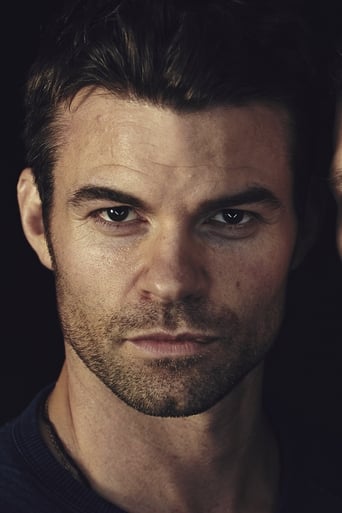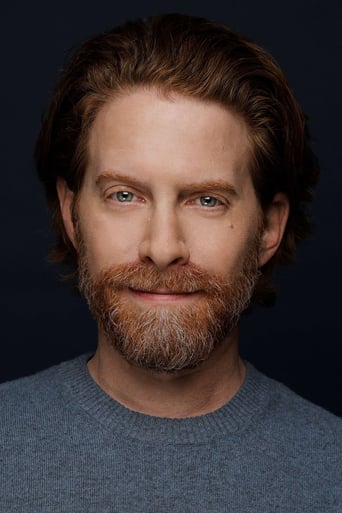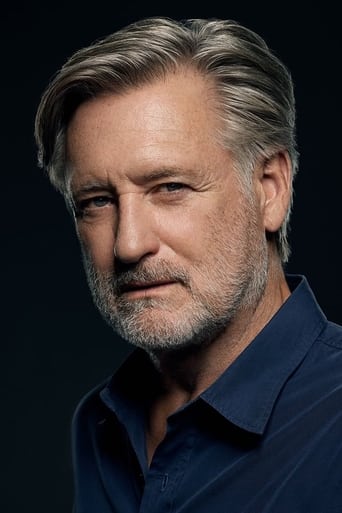Dicastuto
I really enjoy independent films because they can be so refreshing as opposed to the formulaic drivel that comes out of Hollywood. I don't want to see the same thing (and actors) over and over again. That being said, about halfway through this documentary, I started to get a very unsettling feeling in my gut. I stopped feeling sorry for this guy and opposing thoughts started to come to mind: self-serving, elitist, spoiled, delusional, ...The guy has talent but he feels entitled and doesn't seem to have both of his feet on the ground. I became dismayed when I got the feeling that he feels that the world owes him something. I hope this is only unconscious, on his part, because if he is cognizant of this, well, that would be worse. I wanted him to succeed but with great reservations.
ericdrumz
This film is a near-perfect illustration of the delusion so many people (especially actors) have about how movies get made.To begin with, please allow me to dispel the notion that the people in Hollywood who ACTUALLY MAKE THE MOVIES, the oft-maligned producers, are interested in "creating art." We are, as any knowledgeable producer will tell you, most definitely NOT interested in your "vision," your "passion," or your "need to make great films." We are in the business of selling two things: seats and sugar, and I hate to be the thousandth person to say this, but if your script sucks, the only money you're going to be able to raise to shoot it is going to come from people who either feel sorry for you, don't care about making it back (let alone at a profit), or both, as was the case here with David Gillies.Gillies admits his pet project, "Broken Kingdom," is "not commercially viable," yet proceeds to gripe and moan about how hard financing is for him and his hapless co-producer, John Lyons Murphy (who clearly hasn't a clue about how to even market the crap sandwich he's helped create). It is a level of arrogance and faux martyrdom one can only find in actors - the constant need for validation and approval, even when what they're giving you is appallingly bad and self-serving.By the way...a note to so-called producer, Mr. Murphy: There is no, never has been, nor will there EVER be a film "festival circuit," and to propagate that ridiculously false idea is not only irresponsible, but has been one of the biggest reasons why so many great low-, ultra-low- and micro-budget films are never seen. But more on that in a moment.As a producer, I've grown accustomed to the obtuseness of actors, who, despite the fact that it is we who find them, pay them and sustain their careers (provided they continue to prove bankable), completely miss the irony of their derisiveness toward us on a Saturday night, yet show up on set on Monday morning, begging us for more work and bigger paychecks. We don't call them "movable props" for nothing.The same can be said of directors, who all-too-often forget that they are our employees, and that it is we who own "their films," not them. Don't believe me? Think I'm being hyperbolic? Well then, just who is it that steps on stage at the Academy Awards every year and accepts the Oscar for Best Picture? Go ahead. I'll wait.As for "Broken Kingdom's" awards at the prestigious (::gulp::) Rhode Island Film Festival, perhaps some context is in order.Film festivals are for one thing, and one thing only: to sell a finished movie to distributors across the spectrum of revenue streams (theatrical, foreign, cable, etc). In between the red carpets and jewelry heists, producers vie for the attention of development and acquisition executives (DE's and AE's, respectively) who attend festivals in order to buy product to put up on the screen. If you've discovered a great script, turned it into a great movie, the festival screening is sold out, and people are on their feet cheering as the end credits roll, the successful producer (which Gillies and Murphy were clearly NOT in this instance) will find himself fielding deal offers as soon as he steps out of the theater and into the lobby. You don't have to have a multi-million dollar top sheet and a couple of A-list actors to make this happen, but you most definitely better make sure you have a terrific script before you go jetting off to Cannes.Which is precisely why the dangerously popular notion of a "festival circuit" is so destructive to indie and guerilla producers (I say producer, because to the people who are seriously looking to invest in a great project, calling yourself a "filmmaker"is code for "broke and desperate."). Festivals are not only expensive to participate in, but entering your great film in every festival you can afford to enter will instantly kill whatever chance you may have had of being accepted by the Sundance-caliber festivals. After all, you will have given away your world premiere. Just how valuable do you think your work will be once you've screened it for Dubuque, Tampa and Rhode Island? Think, I beg of you.It ain't romantic, but that is the real Hollywood. The collection of self-involved actors, writers and directors who spend much of this documentary kvetching about how evil are those of us who pay them aside, that is how movies get made.In the final analysis, "Kingdom Come" is wonderful schadenfreude for those of us who read literally hundreds of scripts a year. Each and every script we read is accompanied by the writer's belief that his or hers is "The Greatest Script Ever." Unfortunately, the reality is that not everyone is a Charlie Kaufman or Bill Goldman, and no amount of passion, vision or drive to succeed can make up for a discernible lack of talent.Therefore, watching the participants here try (and largely fail) to come to terms with that most daunting and galling fact is on the one hand tragic, yet on the other wonderfully satisfying, provided you're a vindictive S.O.B. (like yours truly) who oftentimes grows damn tired of having to deal with infantile egomaniacal actors in order to produce a feature on time and on budget.Don't get me wrong. We LOVE movies as much, if not more so, than most. Why else would we put up with this nonsense? It's just that the successful producer has demonstrated the ability to find the Great Script, as well as the money to turn that Great Script into the Great Movie, without having to make a documentary about how much trouble we're having selling a crap sandwich.That's the screen trade. Brutal, but truthful.
Guy David Gazit
A lot of people (mostly non show-biz people, but some which are) think filmmaking is an easy enough job - a cozy, smooth, fun and carefree process done by people who are eternal children, people who refuse to grow up and get normal day jobs, people who live in a world of fantasy... mostly referred to as LalaLand. Although some of it may be somewhat true (about the filmmaking being young at heart), the reality of it is that filmmaking is one of the hardest, harshest and most non-gratifying of all occupations - artistic or non-artistic.As a freelance filmmaker with a bit of experience in trying to create my own films (in Israel and outside it), this movie has been a very empathetic-sympathetic story to which I could relate very easily. I think this documentary is a must for anyone who thinks movies are whipped out of one's sleeve, or get done by a mere shake of a magic wand. Anyone thinking about making a movie, as a client of filmmakers such as myself, should be educated about the hardships of the profession. If applied to animated movies - just multiply it by ten... Filmmaking is not only very time-consuming (and time is - as we all know - money), but it is also a form of art which is the work of many, rather than that of a single person, as each of the people working on a movie has his specific job. There are differences between independent movies and those of the film industry (especially funding-wise), but the process of making them is pretty much the same.The documentary is educational and emotional, and is recommended for anyone who's a movie fan, and wishes to learn more about the backstage struggles of independent filmmaking.





